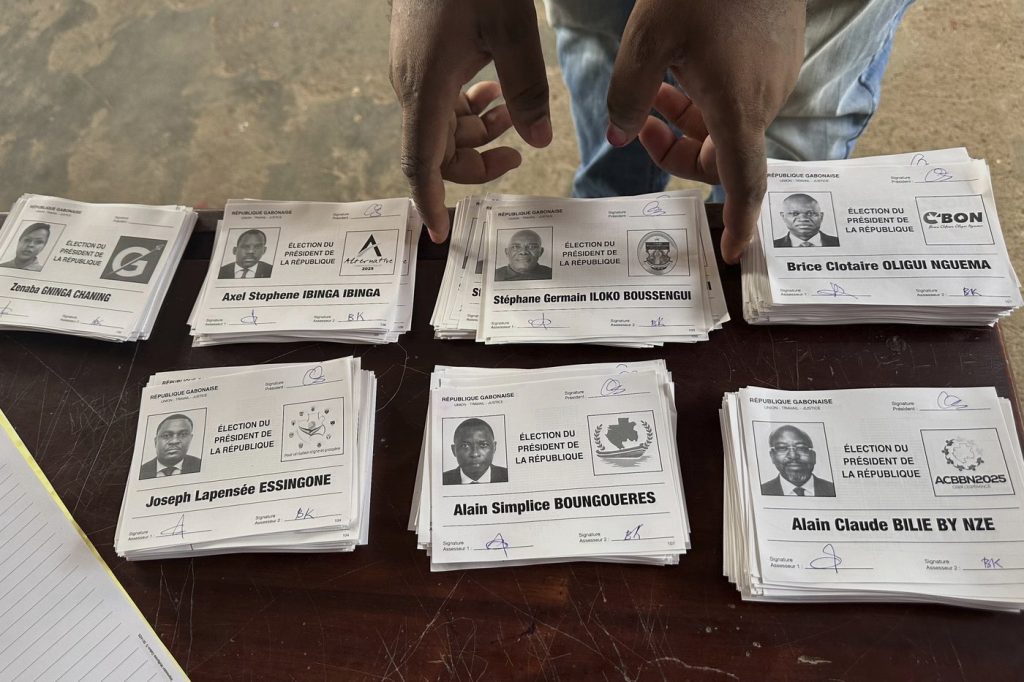Voters in Gabon, an oil-rich nation, participated in a pivotal presidential election on Saturday, a crucial event for the country following the 2023 military coup that overthrew President Ali Bongo Ondimba. The ruling military junta aimed to utilize this election to legitimize their control over the nation, which had experienced more than five decades of political dominance by the Bongo family.
The election marks the first significant political shift since General Brice Clotaire Oligui Nguema, 50, led the coup against Bongo nearly two years ago. It is anticipated that Nguema will secure a decisive victory, potentially consolidating his authority for a term of seven years. Approximately 920,000 voters, including over 28,000 living abroad, were registered to vote at over 3,000 polling stations across the country. Despite its vast oil resources, a significant portion of Gabon's population—about one-third of the 2.3 million residents—lives in poverty.
Following the coup, Bongo was initially placed under house arrest but was released due to health concerns after a week. Notably, his wife and son faced charges related to corruption and embezzlement, although Bongo himself was not charged. In the wake of the coup, Gen. Nguema made promises to restore civilian governance via credible elections, branding his campaign with the slogan “We Build Together.”
In January, the Gabonese parliament enacted a new electoral code that controversially allows military personnel to run for election. A new constitution, adopted through a referendum in November, established a seven-year term for the presidency, with the possibility of one renewal, replacing the previously unlimited five-year term. Additionally, the constitution prohibits family members from succeeding a president and abolished the role of prime minister.
The electoral landscape features eight presidential candidates, but Nguema's primary competitor is Alain Claude Bilie-By-Nze, Bongo’s former prime minister. Bilie-By-Nze has criticized the military’s hold on power, advocating for political, diplomatic, and economic independence from French influence, a theme resonating due to changing geopolitical dynamics in the region. Gabon maintains a unique relationship with France, hosting over 300 French troops—one of the few African nations to do so. While Bilie-By-Nze seeks to renegotiate these ties, Nguema has not indicated a desire to end the French military presence.
During the lead-up to the election, Bilie-By-Nze expressed concerns regarding the transparency and fairness of the electoral process, asserting that “everything has been done to lock down the vote.” In contrast, Laurence Ndong, a spokesperson for Nguema, denied these claims, affirming the election would be free and transparent for the first time.
As voting commenced on Saturday, reports indicated a generally peaceful atmosphere at polling stations in Libreville, Gabon’s capital. Different voters shared their perspectives on the election; some, like Jonas Obiang, expressed skepticism toward the military leadership and chose to support Bilie-By-Nze, viewing the coup as a mere continuation of past malpractices. In contrast, others, such as Jean Bie, believed that military governance had provided tangible benefits, citing completed infrastructure projects as evidence of progress under Nguema's leadership.
Polling was set to close at 1700 GMT, with interim results expected shortly after. The outcome of this election is not only significant for Gabon's immediate governance but may also influence the broader political landscape in Central Africa.










